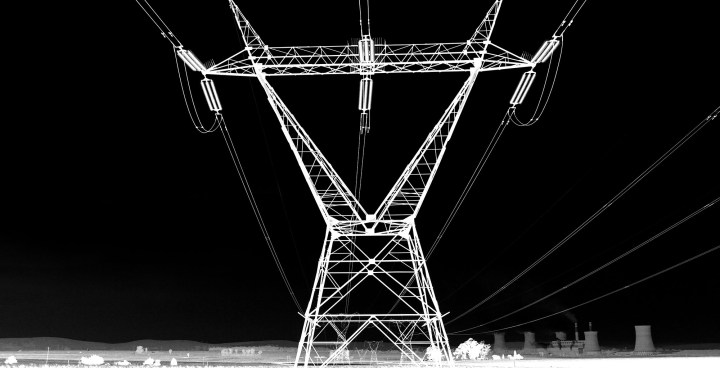CLIMATE CRISIS OP-ED
Government needs to shed light on South Africa’s just energy transition

The government has set a number of priorities to transform South Africa’s energy sector and prepare a climate change response to achieve the just transition – but it continues to send mixed messages.
The “just transition”, a term heard frequently in climate change adaptation, refers to the need to preserve the livelihoods of workers as countries move to a climate-resilient, lower-carbon economy and society.
In his 11 October newsletter, President Cyril Ramaphosa said many important sectors of the economy would be affected by the just transition, including agriculture, tourism, mining, energy, transport, manufacturing and the biodiversity economy.
“A transition to a decarbonised economy must address the needs of workers in these industries and in affected communities,” he wrote. “The process of transition needs to be based on the full involvement of organised labour and business in targeted programmes of reskilling and upskilling, creating employment and providing other forms of support to ensure workers are the major beneficiaries of our shift to a greener future.”
The government, through the Presidential Climate Commission, has given an early indication of its key priorities over the next 24 months on the just transition. It is planning a series of meetings to garner consensus, which may be relatively hard to achieve, given the wealth gap and political fissures between government, business and labour.
Government priorities
These include updating the Integrated Resource Plan (IRP 2019), which maps the country’s future energy mix to 2030, to show no new coal power procurement to 2030 and beyond. The government wants to increase the allocation to renewable energy in the IRP 2019 to at least 30GW by 2030 and fast-track its procurement. At the same time, it wants to find ways to accelerate the decommissioning of Eskom’s coal-fired plants and decide on their repurposing.
Eskom has met with green energy financiers to secure concessional financing to repurpose the decommissioned coal-fired power stations. Encouragingly, Eskom has established its own Just Energy Transition Office, which is evaluating green financing options. It is pitching a $10-billion plan to global lenders to assist in shutting most of its coal-fired plants by 2050 and embrace renewable energy. Eskom is expected to present plans at COP26 to repower its Komati Power Station, using solar and battery storage, to demonstrate it is serious about curbing emissions.
The government sees gas as a vital ingredient in the transition to renewable energy, although many environmental lobbyists are against it. It can provide reliable baseload power to supplement the intermittency of wind and solar. Although batteries and pumped storage are probably better options in the long term, they are still evolving technologies.
It is important to get consensus on the inclusion of gas in the IRP and to quantify how much will be required beyond 2030. Obviously, nuclear has also been considered, with a planned life extension at Koeberg, but arguably new nuclear is problematic because around the world nuclear projects over the past decade have run late and over budget.
Another government priority is to develop a national green hydrogen strategy, and there are some exciting developments in this regard, including Sasol, Linde, Navitas and Enertrag’s involvement in bidding to provide green hydrogen to the German government and Sasol’s plans for a green hydrogen hub at Port Nolloth.
For the power system, the government has identified an urgent need to set up a strategic grid expansion task team. Currently, there is no grid capacity in the Northern Cape, which has the best solar irradiation in South Africa, and other areas also need addressing.
The government intends to kick off the market reform study on Eskom’s unbundling and the establishment of an Independent Systems Market Operator (Ismo). The Ismo has to be separate from Eskom so that independent generators can be confident that Eskom will not be favoured as a seller of electricity and consumers can be confident they are receiving a competitive tariff.
In the just transition, there needs to be a localisation element for renewable component manufacture and a reskilling programme for workers displaced from the coal value chain. The long delay after 2014 in issuing new renewable energy bid rounds resulted in the entities that had established capacity to manufacture items like solar panels and wind turbines and towers having to shut up shop. Even now, reticence remains about taking that risk again. The government has to convince manufacturers that the renewable energy programme will continue.
The Presidential Climate Commission (PCC)
The PCC, which includes representatives from the Cabinet and other stakeholder bodies, was established to provide independent advice on the country’s climate change response. Former deputy finance minister Mcebisi Jonas has argued that the just transition is entirely feasible, given the renewable energy roll-out, and more jobs will be created than those lost in coal-fired plants. But it is essential that the gazetted Renewable Energy Development Zones facilitate the transition in coal-producing areas, to prevent economic collapse.
The PCC has also warned that if South Africa fails to make this transition it will lose investment and face increasing trade and export barriers. The Minerals Council has supported a properly planned and funded transition to a lower-carbon economy.
I am confident that the just transition will go ahead in South Africa. The uncertainty lies in the mixed messages being received from the government, as the minister of minerals and energy has expressed support for the continuation of coal-fired power and research into clean coal technologies. There is a clear need to secure more consensus between government, labour and the private sector. DM
Jason van der Poel is a partner at law firm Webber Wentzel. He advised Karadeniz Holdings Limited on certain aspects of the Karpowership SA Coega Projects and the Karpowership SA Richards Bay and Saldanha Bay Projects.





















 Become an Insider
Become an Insider
Comments - Please login in order to comment.